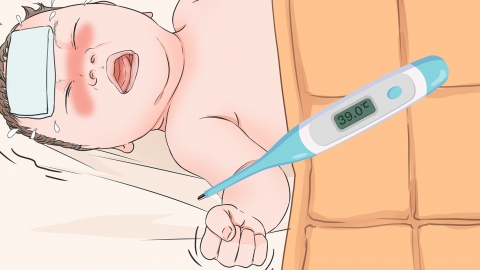Does infantile roseola recur?
Infantile急疹, commonly known as roseola infantum, rarely recurs in most cases. After contracting the disease once, the majority of children develop long-lasting immunity, making the chance of reinfection extremely low. If there are any concerns, it is recommended to seek medical consultation in advance. Detailed analysis is as follows:

Roseola infantum is mostly caused by infection with human herpesvirus 6 (HHV-6), and in some cases, by HHV-7. After infection, the child's immune system produces specific antibodies, which remain in the body long-term. When encountering the same type of virus again, these antibodies can quickly respond and prevent infection. Therefore, recurrence is extremely rare.
In very rare cases, reinfection may theoretically occur if the child has a weak immune system or is infected with a different viral subtype, although such cases are exceedingly uncommon. Clinically, it is more often the case that parents mistake other fever-related rash illnesses (such as hand, foot, and mouth disease or rubella) as a recurrence of roseola infantum, rather than true reinfection.
If an infant or young child again develops symptoms of high fever accompanied by a rash, prompt medical evaluation is necessary to establish an accurate diagnosis and avoid delays in treatment due to self-diagnosis. Maintaining good hygiene practices, ensuring regular ventilation, frequent handwashing, and providing appropriate nutrition to strengthen the child's immunity are essential measures to reduce the risk of viral infections.





